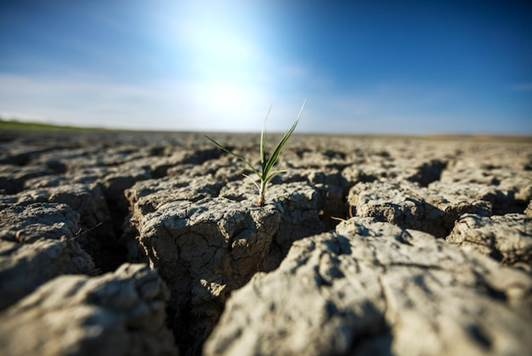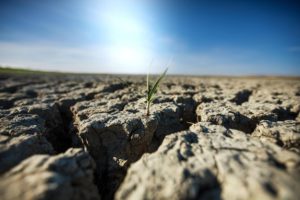
Our Land, Our Future
This year’s World Environment Day highlights the pressing issues of land restoration, desertification and drought resilience.

Photo: Freepik
We depend on soil for growing crops. However, drought and desertification are harming the land that lets us put food on the table. Declining soil quality can make it hard for plants and animals to survive in parched soil. Every 15 minutes, we lose 360 hectares of arable land – equivalent to the size of Marina Bay.
Rice crops provide at least 20% of daily calories for about half the world’s population. However, we could see yields drop by over 5.5% if temperatures climb by 1.5°C. Major rice producers such as China and Thailand are already facing low harvests from hotter and drier growing conditions.
Climate change adds another layer of unpredictability to harvests. Droughts can have devastating effects on crops, even in the tropics where we typically enjoy abundant rainfall. However, prolonged dry spells, rising temperatures, coupled with more frequent and severe droughts can diminish soil moisture. More people will also be forced to leave their homes as a result of everything from food shortages and land scarcity to increased conflict.
As for businesses, droughts have long-lasting impacts as firms rely on natural resources to maintain their operations, produce goods, and deliver services. For instance, agriculture producers need healthy soil and water to support favourable growing conditions. Asia’s rice prices soared to a 2-year high in July 2023 on the back of concerns over crop losses from exceptionally hot and dry weather. If Singapore is unable to achieve its 30 by 30 food security ambitions, how then will it cope when its major suppliers are hard-hit by poor harvests?
Climate change, biodiversity loss, and pollution threaten to destroy ecosystems that we all depend on for food, water and survival. Land restoration is a key pillar of the UN Decade on Ecosystem Restoration (2021-2030), which calls for global protection and revival of ecosystems. At PCM, our environmental analysis identifies and supports businesses that act on biodiversity by implementing sustainable land use, resource management, and procurement policies. While we cannot turn back time, we must reinforce actions that support healthy ecosystems by bringing back soils, regenerating forests, and reviving water sources.
Important Information
This material is provided by Phillip Capital Management (S) Ltd (“PCM”) for general information only and does not constitute a recommendation, an offer to sell, or a solicitation of any offer to invest in any of the exchange-traded fund (“ETF”) or the unit trust (“Products”) mentioned herein. It does not have any regard to your specific investment objectives, financial situation and any of your particular needs.
The information provided herein may be obtained or compiled from public and/or third party sources that PCM has no reason to believe are unreliable. Any opinion or view herein is an expression of belief of the individual author or the indicated source (as applicable) only. PCM makes no representation or warranty that such information is accurate, complete, verified or should be relied upon as such. The information does not constitute, and should not be used as a substitute for tax, legal or investment advice.
The information herein are not for any person in any jurisdiction or country where such distribution or availability for use would contravene any applicable law or regulation or would subject PCM to any registration or licensing requirement in such jurisdiction or country. The Products is not offered to U.S. Persons. PhillipCapital Group of Companies, including PCM, their affiliates and/or their officers, directors and/or employees may own or have positions in the Products. This advertisement has not been reviewed by the Monetary Authority of Singapore.
